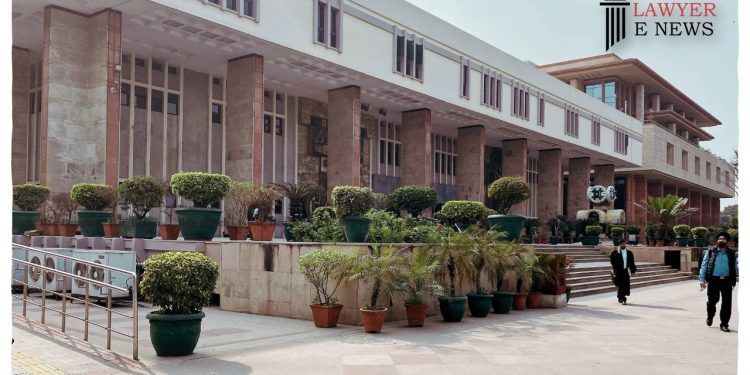Objections Section 47 Of CPC Cannot Be Considered In Enforcement Petition Section 36 Of The A&C Act: Delhi HC

The High Court of Delhi has ruled that a court cannot take into account objections available under Section 47 of the CPC when enforcing an arbitration judgement under Section 36 of the A&C Act.
Despite the requirement in the Arbitration Act of 1940 that the Arbitral Award be made a rule of the Court and a decree, the Justice Vashwant Varma bench ruled that Section 36 of the Arbitration Act of 1996 gives the Arbitral Award the status of a decree and allows it to be enforced in the same manner as if it were a decree of the Court. An arbitration award is a deemed decree, but the objections that can be made against a decree at the enforcement stage would not apply to it because the deeming fiction is limited for the purpose of enforcement and not to make it a decree for all reasons.
The Court determined that only Section 34 can be used to contest an arbitration award.Although the Arbitration Act of 1940 required that the Arbitral Award be made a rule of the Court and a decree, the Justice Vashwant Varma bench held that Section 36 of the Arbitration Act of 1996 grants the Arbitral Award the status of a decree to be enforced in the same way as if it were a decree of the Court. The arguments that can be raised against a decree at the enforcement stage would not apply to an arbitration award, which is a deemed decree solely because the deeming fiction is confined for the purpose of enforcement and not to make it a decree for all purposes.
The Court determined that only Section 34 can be used to contest an arbitration award.
The Court ruled that the ruling in Khanna Traders (supra) was rendered without taking into account any of the Court’s previous rulings and failed to adopt the proper legal perspective. It was decided that Khanna Traders had not taken into account the ruling in Morgan Securities v. Morepen Laboratories[2] where the Court ruled that an objection that has been waived under Section 34 cannot be raised in a petition for enforcement. The Court did not rule that Morgan Securities, which was referenced and affirmed by the Division Bench, was inapplicable, inappropriate, or separable, hence the ruling in Khanna Traders was rendered disregarding the controlling precedent.
The Court held that although the award is a deemed decree and is enforced in the same manner, the deeming fiction is limited for the purpose of enforcement and does not make it a decree for all purposes, thus, the objections that can be raised. The Court cited the Supreme Court’s rulings in Paramjeet Singh Patheja v. ICDS,[3] Amazom.Com v. Future Retail,[4] and Daelim Industrial v. Numaligard
The Court cited the Supreme Court’s rulings in Furest Day Lawson v. Jindal Exports,[6] Pam Development v. State of W.B.,[7], and Pam Development v. State of W.B.
The Court ruled that an arbitration award can only be contested under Section 34, and even then, only on the specific grounds listed in Section 34, and that a court cannot consider objections available under Section 47 of the CPC while enforcing an arbitration judgement under Section 36 of the A&C Act (2). It was decided that because the Act does not provide for a dual challenge, an award cannot be contested on the merits in a petition for enforcement.
The Court then set a date for hearing the enforcement petition on the merits after dismissing the objections as unmaintainable.
Hindustan Zinc Ltd
vs
National Research Development Corporation, OMP






